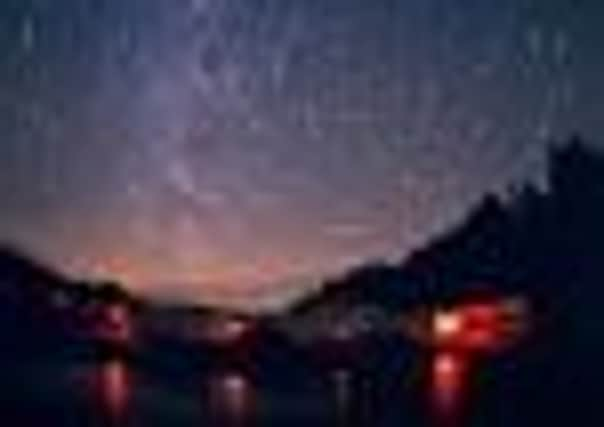Night sky video: Parks turn to dark side and strike back in star wars
This article contains affiliate links. We may earn a small commission on items purchased through this article, but that does not affect our editorial judgement.


The chance to catch a glimpse of celestial wonders under the cloak of darkness has been eroded with the growing problem of light pollution from the expansion of the nation’s towns and cities.
But Yorkshire’s astronomical experts are helping ensure that future generations will be given the opportunity to marvel at the stars and constellations that have captured people’s imagination for thousands of years.


Advertisement
Hide AdAdvertisement
Hide AdRemote locations in the region’s national parks have carved out a burgeoning reputation for star-gazing as the popularity of astronomy has soared in recent years.
Plans are now being considered to apply for Dark Sky status, which would give key planning guidance to help prevent further light pollution from future development.
National park authority officials from both the Peak District and the North York Moors have staged astronomy events in recent years, and confirmed yesterday they are in talks about seeking Dark Sky status.
The Peak District National Park Authority research officer John Tanner has been spearheading the drive to raise awareness of the wonders of the night sky.
Advertisement
Hide AdAdvertisement
Hide AdHe said: “For thousands of years, mankind has enjoyed the influence of the night skies which have developed society and our beliefs.
“But over the last 50 or 75 years, the night skies were deemed no longer important and they have been largely forgotten about. That is, however, changing as more people are taking time to discover the wonders of the stars.
“The pace of modern life is so frantic, but astronomy is giving people a chance to escape and spend time marvelling at what is above us.”
Concerns have been growing over the problem of light pollution, and research has revealed that more than 85 per cent of the UK’s population has never seen a truly dark sky.
Advertisement
Hide AdAdvertisement
Hide AdBut there is a growing interest in astronomy buoyed in part by celebrity astro-physicist Prof Brian Cox, who hosted the second series of the BBC’s Stargazing programme earlier this year.
The region itself hit the headlines in January when the spectacular Northern Lights were seen from England’s highest pub, the Tan Hill Inn, in North Yorkshire.
The plans for Dark Sky status in Yorkshire come in the wake of an announcement to create what would be Europe’s largest preserve of its kind.
A formal application is due to be submitted in the autumn to gain the designation from the International Dark Skies Association (IDA), based in Tucson, Arizona, for nearly 400 square miles of countryside in Northumberland.
Advertisement
Hide AdAdvertisement
Hide AdIf successful, Kielder Water and Forest Park would become England’s first Dark Sky Park, while the neighbouring Northumberland National Park would be Europe’s largest Dark Sky Reserve.
Martin Whipp, the secretary of the York Astronomical Society, is a regular visitor to Northumberland to pursue his love of learning more about the night skies.
Mr Whipp, 36, a retinal photographer who lives in Ripon, said: “It is great news for astronomers, but Dark Sky status would bring other benefits as well.
“Wildlife can be greatly affected by light pollution – certain birds of prey only hunt at night and can be confused by bright lights.
Advertisement
Hide AdAdvertisement
Hide Ad“We really do need to start thinking about the effects that light pollution is having, as it is impacting on landscapes that have remained untouched for so many years.”
The North York Moors National Park Authority has instigated a concerted campaign to attract more visitors by promoting night skies tourism. Sutton Bank was named as a Dark Sky Discovery Site earlier this year under a national initiative, but plans are now under way to secure global recognition from the IDA.
The North York Moors National Park Authority’s assistant director of park services, Michael Graham, confirmed initial talks were held last week with the Forestry Commission about securing Dark Sky status. It is hoped that eventually a large area of the national park encompassing Dalby Forest and Sutton Bank could receive official designation from the IDA.
Mr Graham said: “We have recognised that the dark skies above the national park are a very special quality, and they are another attraction which is on offer – and above all, it is free.”